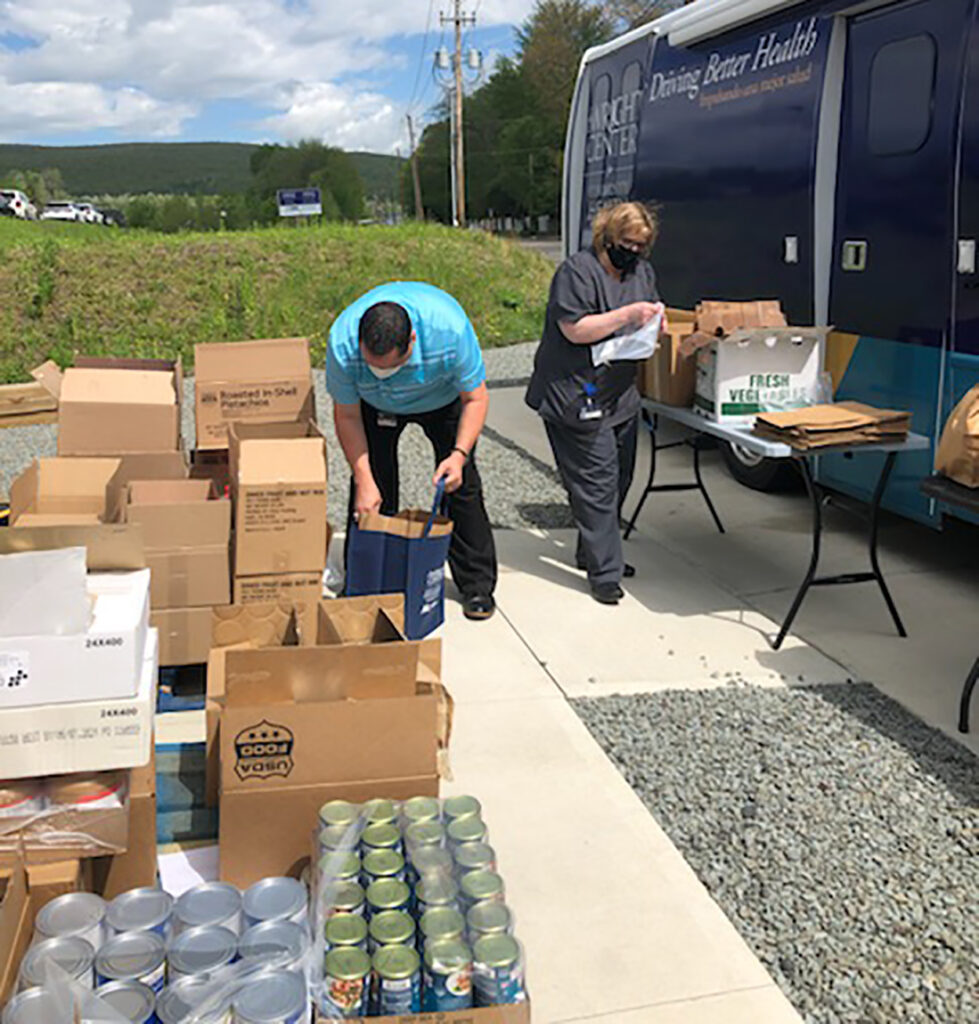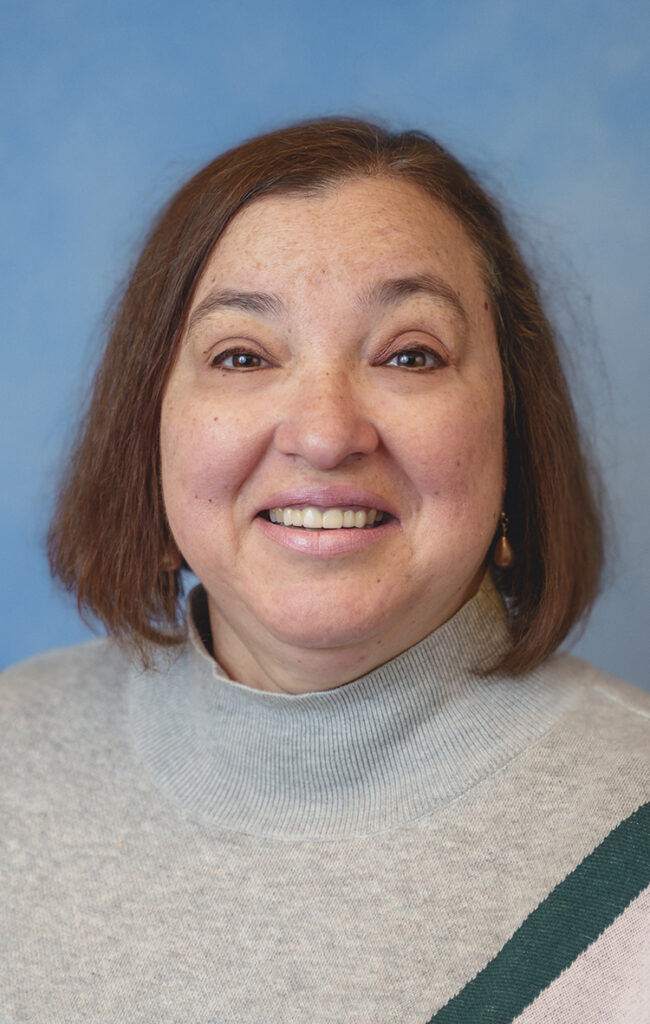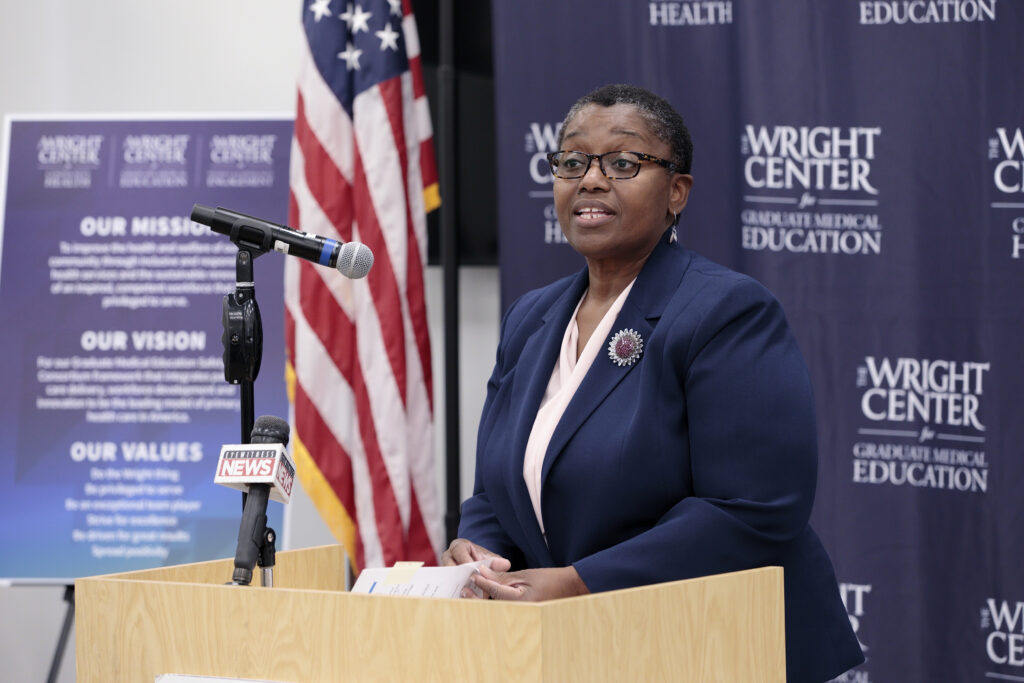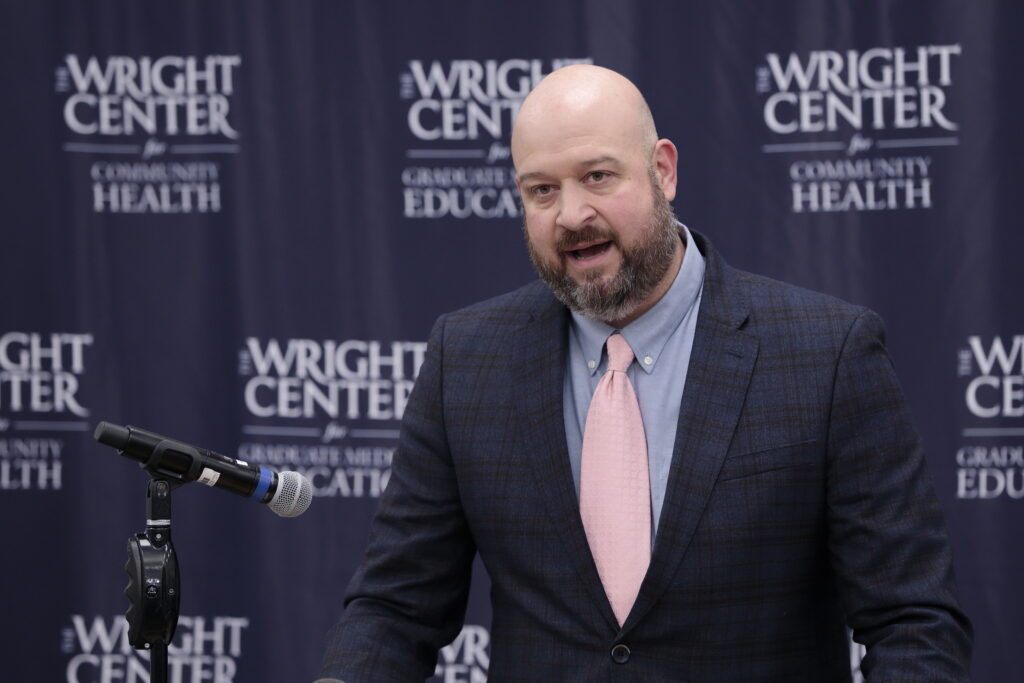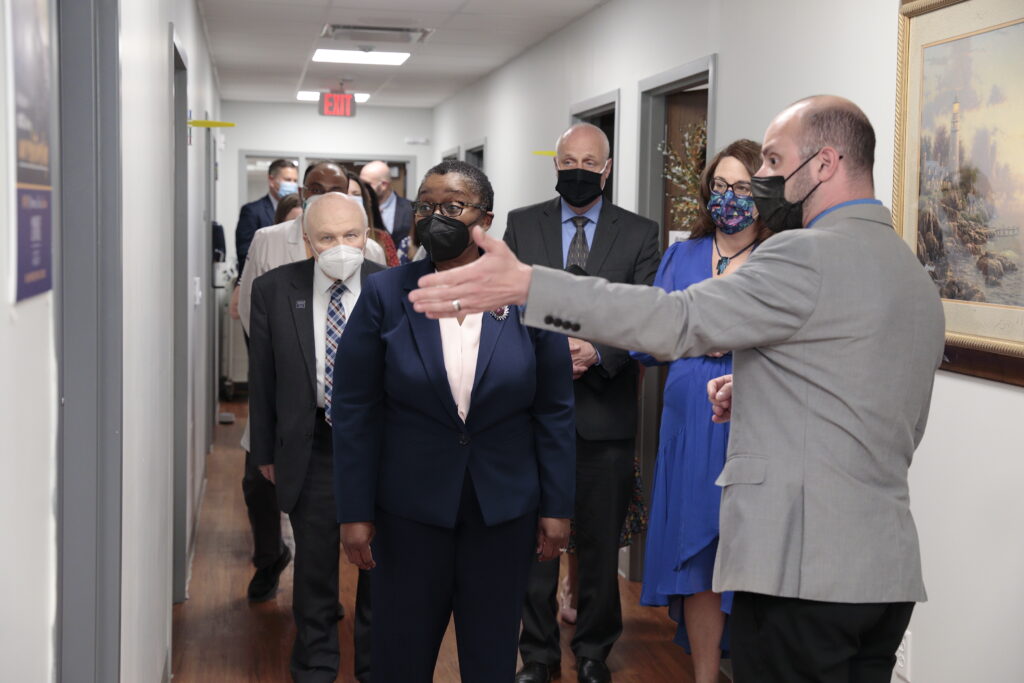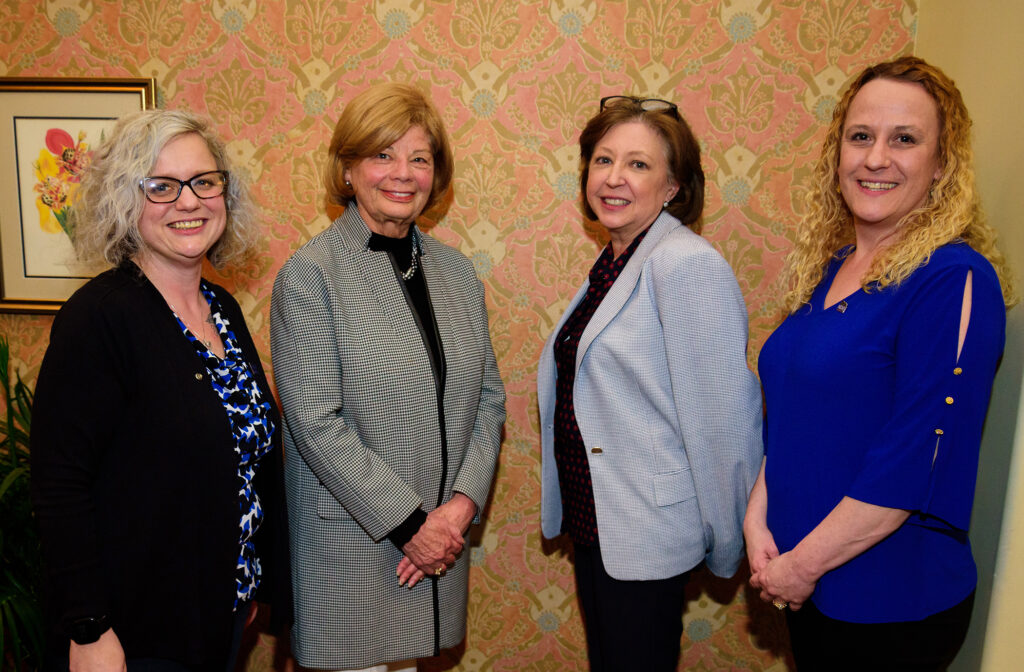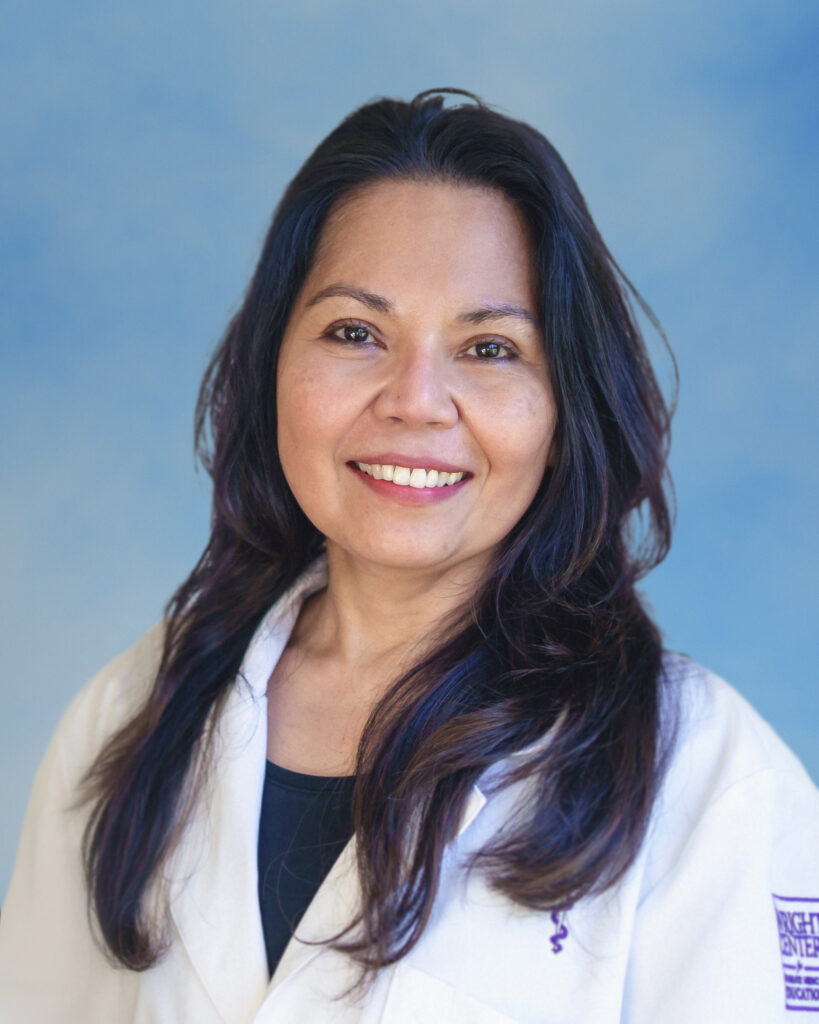In the ongoing effort to reduce COVID-19-related hospitalizations and deaths across the region, The Wright Center for Community Health is following federal and state “test-to-treat” guidelines by providing certain patients with therapeutic treatments for COVID-19 such as Pfizer’s Paxlovid.
Paxlovid – which is available only by prescription – has been found to substantially decrease the chances of severe symptoms in high-risk patients such as older adults if it is started early in the course of infection, typically within five days of symptoms appearing. Individuals 12 and older who test positive for coronavirus are eligible for the treatment if they meet certain criteria, such as having an underlying medical condition that puts them at increased risk for complications.
Individuals who are prescribed the treatment during a visit at The Wright Center for Community Health Mid Valley Practice in Jermyn can obtain the medication on site. At The Wright Center’s other clinics in Northeast Pennsylvania, a patient in need can have the prescription immediately sent a pharmacy supplier of Paxlovid.
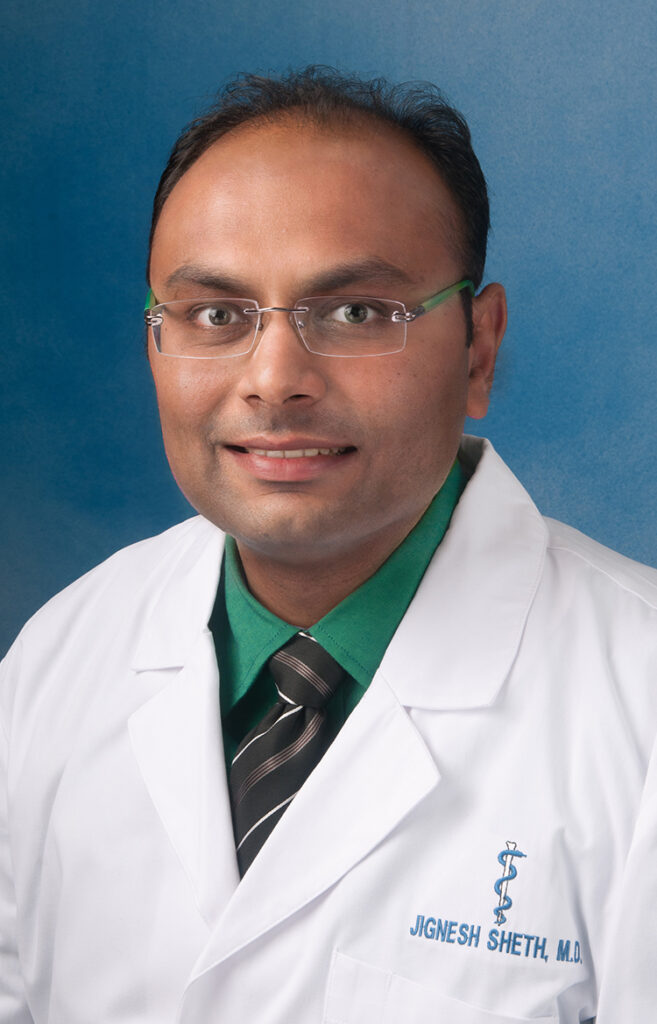
Dr. Jignesh Y. Sheth,
Chief Medical Officer
“Early treatment can make the difference between a relatively quick recovery and a much more difficult, potentially life-threatening, situation,” said Dr. Jignesh Sheth, chief medical officer of The Wright Center for Community Health. He noted that the health center has supplies of both Paxlovid and another antiviral medication, molnupiravir, allowing for a rapid and seamless response between a patient’s positive test result and the start of treatment.
The U.S. Food and Drug Administration authorized Paxlovid’s use in December 2021, but distribution efforts were initially spotty. Since then, Pfizer ramped up production, and the White House last month announced plans to expand access to the treatment. Paxlovid is now widely available in community pharmacies.
Possible side effects of the oral antiviral include an impaired sense of taste, high blood pressure, diarrhea and muscle aches. If you are taking other medications, talk with a health care provider about potentially significant drug interactions. Paxlovid is not recommended in patients with severe kidney or liver impairment.
For eligible patients, The Wright Center also continues to offer monoclonal antibody infusions – an FDA-authorized therapy that has been shown to lessen the severity of COVID-19 symptoms for certain individuals deemed at increased risk of hospitalization.
Although several monoclonal antibody medicines have received the FDA’s authorization during the pandemic, only one, bebtelovimab, is currently continuing to be used because of its proven effectiveness against the omicron variant. Delivered via an intravenous “push,” the medication is administered to the patient in about two to six minutes, followed by one hour of observation in the clinic. The therapy is a one-time treatment.
In total, The Wright Center has administered more than 1,400 COVID-19 monoclontal treatments in the past 18 months, helping to lower the burden on the region’s hospitals by limiting severe illness and saving lives.
